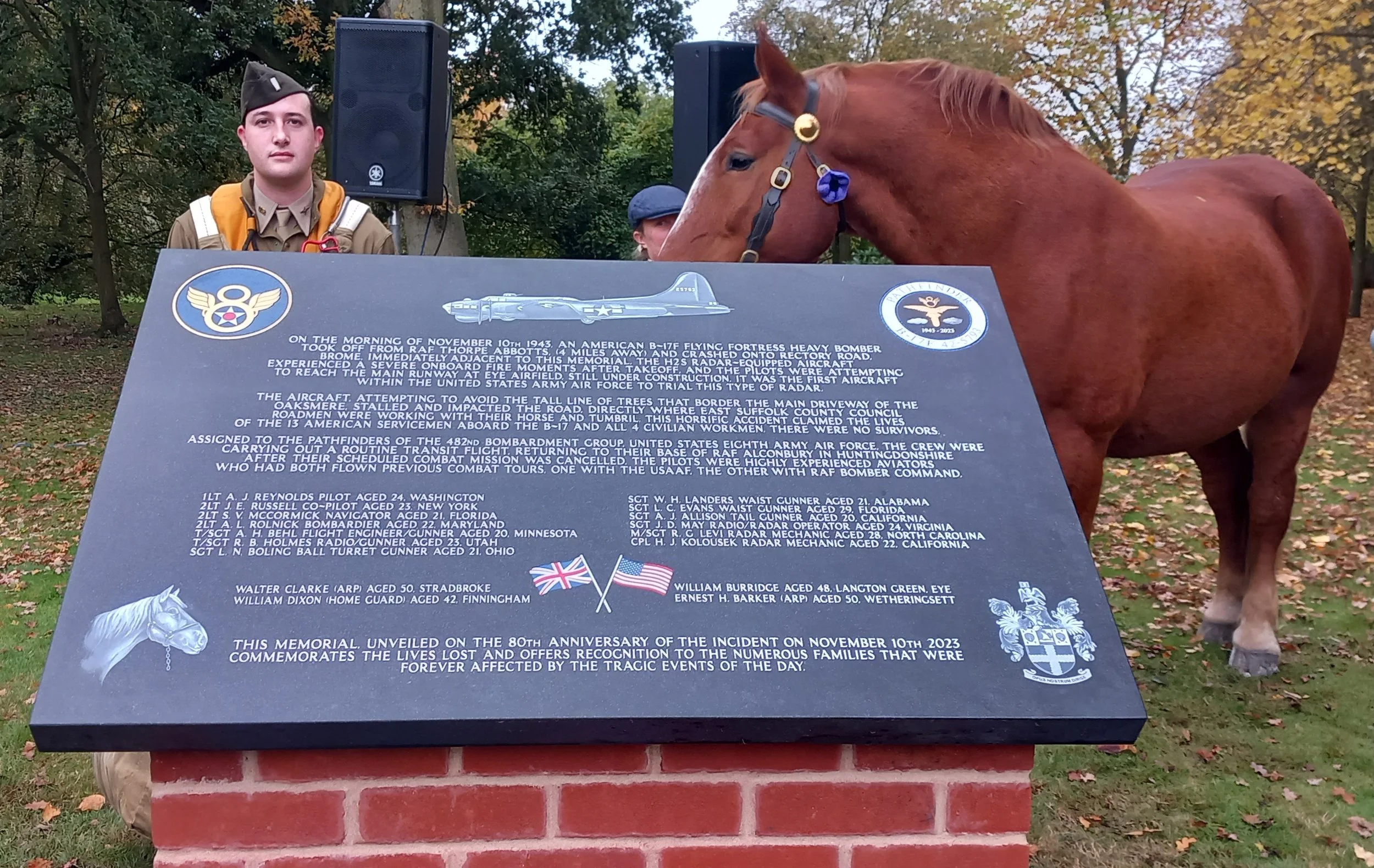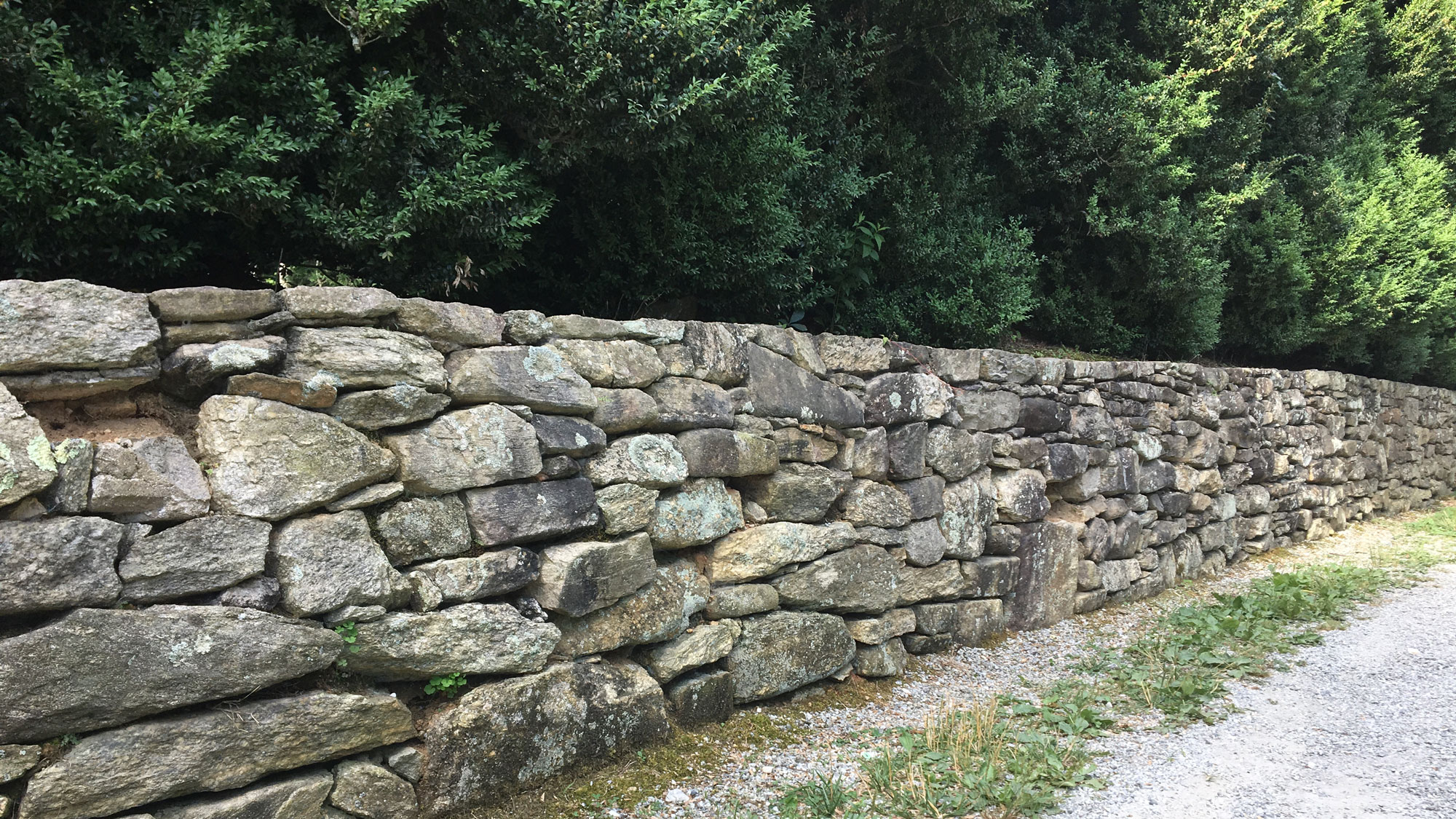Keeper of the Mountain Stories
/Keeper of the Mountain Stories:
Robert Morgan’s Literary Journey
During the 1950s, author Robert Ray Morgan was first a student at The Tuxedo School and later at the old Flat Rock High School. Sixty years later, that young boy who grew up in a home without indoor bathrooms and listening intently to the stories of his Appalachian ancestors, is arguably one of America’s most distinctive literary voices. Today, he is an author celebrated for novels, short stories, and poetry that bring the mountains of western North Carolina vividly to life.
Over the course of a career spanning more than half a century, Morgan’s work has reached audiences from the rural hollows of Appalachia to international readers, earning him an esteemed place in the canon of contemporary Southern literature. Indeed, his 1999 novel Gap Creek became a New York Times bestseller and an Oprah Book Club selection, opening the world of Appalachian storytelling to a vast new readership.
Yet for all his national acclaim, Morgan’s stories remain deeply rooted in the land and people of his youth—a connection that has shaped not just the settings of his work, but its emotional heart. I recently had the privilege of speaking with Mr. Morgan and listening as he shared stories of his upbringing in the Green River Valley and explained how those experiences shaped his approach to storytelling.
Growing Up in the Green River Valley
Born in Pardee Hospital in 1944, Morgan’s childhood unfolded on a small farm in the Green River Valley south of Flat Rock, near Tuxedo. He was christened Robert in memory of his mother’s brother, Robert Levi, who died in a B-17 plane crash during World War II. His childhood home built of river rock by his father in the early 1950s, still stands and remains in the family. The family land traces back to his great-great-grandfather, Daniel Pace, who purchased it in the 1840s.
MOrgan’s namesake an uncle, Robert. G Levi
Much of the land owned by Morgan’s extended Green River family was acquired through land grants in the late 1700s and early 1800s. “At least four of my ancestors fought at the Battle of Cowpens (1781) and were given military tracts because of that,” Morgan explains. His great-great-grandfather Captain John Levi was a drummer boy in the War of 1812 and received a land grant on Panther Mountain just south of Tuxedo straddling the border between North Carolina and South Carolina.
Like many Appalachian families, the Morgans lived simply, raising beans, potatoes, and corn; keeping chickens and a cow, and butchering a hog each year. “I spent a lot of time on the bean field and the corn field and did a lot of that hot work,” he recalls. “Everybody I knew lived pretty much the same way. It was my job to feed the chickens, gather eggs, milk the cow, get the stock in the barn, and shell corn. We didn't have a tractor. We had to plow with a horse.”
Morgan’s father was a part-time carpenter and house painter. His mother worked in the Tuxedo cotton mill, in local shops, and eventually at the General Electric plant beginning in 1960 - a job that changed the family’s fortunes. “That changed our life because she was making a steady income. When I was a little kid, we essentially lived on what we could grow. I knew a lot of people and older relatives who had neither electricity nor plumbing.”
Morgan recalls coming to Flat Rock to sell eggs at Fletcher’s Store that was next to the old Peace’s Grocery on Greenville Highway. “I remembered vividly if I was lucky, I got an Orange Crush soda.”
Just as daily life was grounded in the rhythms of farming and community, the family’s faith was central to Morgan’s experience as a child. The family’s social center was the Green River Baptist Church, where services, prayer meetings, and Bible readings structured the week. “We attended church twice on Sunday, prayer meetings on Saturday night, a prayer meeting on Wednesday night, and had family prayer every night.”
As he got older, Morgan saw firsthand the postwar transformation of the mountain South, as retirees and new industries began to reshape the region. “I came from a world where people used kerosene lamps and carried water from the spring house. It wasn’t until outsiders began showing up in Cadillacs that I realized that we were kind of off the map.” He adds with a laugh, “I tell people I grew up with one foot in the 19th century and the other in the 21st century.”
--
Perhaps the most consequential aspect of Morgan’s early years in the Green River Valley was the tradition of storytellers who informed his worldview. His childhood was rich in stories, passed down from parents, grandparents, and neighbors. His father, a history buff and gifted conversationalist, could hold forth on Washington’s presidency, Lincoln’s Gettysburg Address, or the Civil War. Family lore included tales of Revolutionary War veterans, Civil War prison camps, gold rumored to be buried in Flat Rock, and colorful ancestors who were gamblers, fiddlers, or Texas Revolution militiamen. These narratives—sometimes factual, sometimes embellished—were a formative education in the art of storytelling.
“We didn't have TV; we didn't have a radio. You sat around at night and read or talked or sat on the porch in the summertime. My grandpa Levi was a great storyteller. He liked horrific stories. He told of a couple who got married and built their cabin on top of a den of rattlesnakes. I found out later it is an old story from Scotland. But we thought it really happened. He didn't say, you know, this is just Scottish folklore. They never let facts stand in the way of a good story.”
Teachers and Turning Points
Robert Morgan in Mrs. Mullinax’s 2nd grade class 1952-53 at The Tuxedo SChool
Morgan attended the small Tuxedo School before graduating to Flat Rock High School which stood on the site of the current Flat Rock Square at the corner of Greenville Highway and West Blue Ridge Road.. Throughout his tenure as a student, he credits several teachers for incubating and nurturing his future career as a writer.
An early influence was teacher Dean Ward at Tuxedo School. “Mr. Ward encouraged me to write when I didn't have enough money ($3.00) to go to the Biltmore house on a field trip. He said, ‘Write something about a man who's lost in the Canadian Rockies and describe how he comes back to civilization.’ And that was fun. I discovered you just make up lies and tell a story. John Updike said the first sign of a talented fiction writer is the ability to lie convincingly. I could never put it better.”
Morgan’s high school English teacher, Julia Lappin, encouraged students to write about their own experiences rather than only analyzing literature. When Morgan offered he had “nothing to write about except the farm,” she predicted he would one day be proud of it—a prophecy fulfilled many times over. “Flat Rock High was so poor, she taught her classes in a section of the auditorium. She encouraged us to write essays not about literature, but about our own experience. That was very unusual in teaching at that time.”
Biology teacher Leslie Fisher instilled the discipline of breaking down complex problems into manageable parts, a skill Morgan credits with shaping his writing process. Latin and history teacher Elizabeth Rogers, from upstate New York near Cornell where Morgan now lives, taught him precision in both language and thought, right down to pronouncing every syllable of Hendersonville. “She impressed upon me that it was not ‘Hener-sonville.’ I thought, ‘Oh, that's the way Yankees talk. Maybe I'd better learn to say all the syllables.’ It was an important lesson that stood me in good stead. You say all the syllables.”
Eager to immerse himself in a wider world of books, music, and ideas, Morgan left high school after the 11th grade to attend Emory College at Oxford, Georgia, on an early-admissions program. “It was a jump from Tuxedo to Flat Rock. But imagine going from Green River to college at the age of 16,” he says with a grin.
Robert Morgan, 5th grade,
1955-56
After Georgia, Morgan studied aerospace engineering and advanced mathematics for a short time at NC State University during the height of the space race. There, encouragement from writer Guy Owen and others shifted his focus firmly toward literature. A short story about his great-grandmother during the Civil War moved Professor Owen to tears. “That made an impression,” Morgan admits. “None of my math teachers had ever said anything like that. I was hooked and never looked back.” Morgan eventually transferred to UNC-Chapel Hill, where he majored in English.
Becoming a Writer
At Chapel Hill, he was introduced to poetry by fellow students from New England prep schools. “They kept asking to see some of my poems. I finally typed up some little poems and gave it to them. Later, about two or three o'clock in the morning, they were banging on my door and told me, ‘Gosh, these are so good. We just had to come over and tell you.’ Well, that's the kind of validation you want to hear. That began to reinforce my interest in poetry.”
Although Morgan’s earliest publications had been short stories, he soon gravitated toward poetry, influenced by his peers and by mentors like Fred Chappell at UNC-Greensboro, where Morgan earned his MFA. His first collection, Zirconia Poems (1969), drew national attention, and in 1971, he accepted a one-year visiting lectureship at Cornell University. “I was painting a house for my aunt down on Green River when I got a letter from the chairman of the English department at Cornell University, inviting me to come and teach poetry workshops for a year. You can imagine how exciting that was. I was making two dollars an hour painting houses. And then I was invited to teach at an Ivy League University.”
That “temporary” appointment became a 51-year teaching career, culminating in his retirement in 2022 as Professor of English Emeritus. Looking back on his tenure, Morgan is humble about his place at a school known for astronomers and a great agricultural school. “I said in a lecture once, it was a good place for a poet among the people who were experts in stars and weeds.”
--
Although poetry dominated his early career, Morgan never abandoned fiction. His subjects, whether in verse or prose, remained remarkably consistent: the landscapes, histories, and people of Appalachia. “If you go back and read my earliest poems, you’ll see the subjects are the same,” he says. Works like The Blue Valleys, The Truest Pleasure, and This Rock explore universal themes of struggle, endurance, love, and loss through the lens of mountain life.
His breakout moment came with Gap Creek, a novel set along the North-South Carolina border in the early 20th century. When Oprah Winfrey selected it for her book club, Morgan’s readership expanded overnight. For Morgan, the true reward wasn’t fame or sales, but the discovery that his regional stories could resonate far beyond their setting. “The themes in Gap Creek of struggle, endurance, love, and loss are universal,” he says.
Writing Beyond the Self
Robert Levi and fiancée Sue Pace, 1942
One of Morgan’s most significant breakthroughs came with The Mountains Won’t Remember Us, a novella based on the life and death of his uncle, Robert Levi, a World War II airman for whom Morgan was named. Unable to make the story work from his own perspective, he reimagined it through the eyes of the uncle’s fiancée, a real woman he had known. That shift unlocked the narrative and taught him the power of what he calls the “empathetic imagination” - inhabiting another person’s experiences, values, and emotions as an actor might embody a role.
“The most important thing to know about fiction writing is that to be good at it, you have to escape yourself. You have to humble yourself to the characters and to their world, to their emotions, their point of view. And once you do that, you escape your own experience, your own ego, and your senses. I think it's a very close connection between writing and acting. And it's not an accident that the greatest writer in English (Shakespeare) was also an actor.”
A Career of Honors
Morgan’s work has been recognized with numerous awards and fellowships, including NEA grants, a Guggenheim Fellowship, the North Carolina Literature Award, and the Academy Award in Literature from the American Academy of Arts and Letters. Yet he speaks of these distinctions with humility, noting that the thrill of selling 16 copies of a poetry collection at a small bookstore reading can be just as satisfying as hitting the bestseller list.
His extensive bibliography spans poetry, fiction, biography, and essays. Beyond Gap Creek and The Mountains Won’t Remember Us, notable titles include the biography Boone, winner of the Kentucky Book Award; Lions of the West; Chasing the North Star; and most recently Fallen Angel: The Life of Edgar Allan Poe. His 2023 short story collection, In the Snowbird Mountains and Other Stories, returns yet again to the Appalachian settings that have defined his work.
Life After Cornell
In retirement, Morgan divides his time between Ithaca, New York, and his homeplace in Zirconia, North Carolina. He continues to write and is currently working on a biography of Davy Crockett. This fall, he is also re-releasing The Mountains Won’t Remember Us as a standalone volume, bringing the novella back into print more than thirty years after its debut.
September will find Morgan back in North Carolina, tending to his Green River Valley home and speaking at the First Congregational Church in Hendersonville on September 9th about his novel, The Truest Pleasure. He will also be delivering a lecture on Daniel Boone at the Wilkes Heritage Museum on September 6th as a fundraiser for the Boone Heritage Trail and plans research trips to Tennessee for his Crockett biography.
A Storyteller of a Vanishing World
Morgan’s parents, Clyde and Fannie Morgan, with sister Evangeline (left), Robert (Center), and Robert’s wife Nancy (r) c. 1970
Morgan credits the resonance of his work with honest and authentic portrayals of Appalachian life. “Some writers tend to idealize it,” he explains. “They portray growing up in Appalachia as a pastoral fantasy. It wasn't.” He also laments the passing of an era. “The old tradition is to a great extent gone because we have YouTube and television and film and radio at our fingertips now. We're just a number culture now. In the days of my youth, we were a word culture. “
For all his travels, accolades, and literary achievements, Robert Morgan has never lost sight of where he came from. He still identifies strongly with the small-town boy who grew up listening to his family members spin stories on the porch, working in the bean fields, and walking to church on Sunday mornings. The self-reliant, close-knit Appalachian world of his youth has largely vanished, swept away by economic change and cultural shifts. Yet in Morgan’s novels, short stories, and poems, it endures. As does Morgan’s perception of himself as a son of the Green River Valley. “I'm 80 years old and I still feel pretty much like the person that grew up on the Green River. I don't feel that different. I've really never left that place.”
Through his meticulous attention to detail, his ear for the rhythms of mountain speech, and his ability to inhabit the inner lives of his characters, Morgan has created a body of work that preserves not just a place, but a way of seeing and feeling. His Green River Valley is both specific and universal, a microcosm of human resilience and longing. In telling its stories, he has told America’s story—and helped ensure that, even if the mountains themselves won’t remember, the rest of us will.
--
Epilogue
Robert Morgan, 2000
I am deeply grateful to Mr. Morgan for so generously granting me this interview. He welcomed my questions with warmth, answered with thoughtfulness, and carried himself with the humility of someone whose extraordinary life is matched only by his modesty. Our conversation reminded me that Robert Morgan is not only a remarkable writer and a guardian of the stories of our region—he is, above all, a kind and good man. That, I believe, is the highest tribute one can offer.
Thank you, Robert, for your time, your words, and your enduring gift to us all.
—BH















